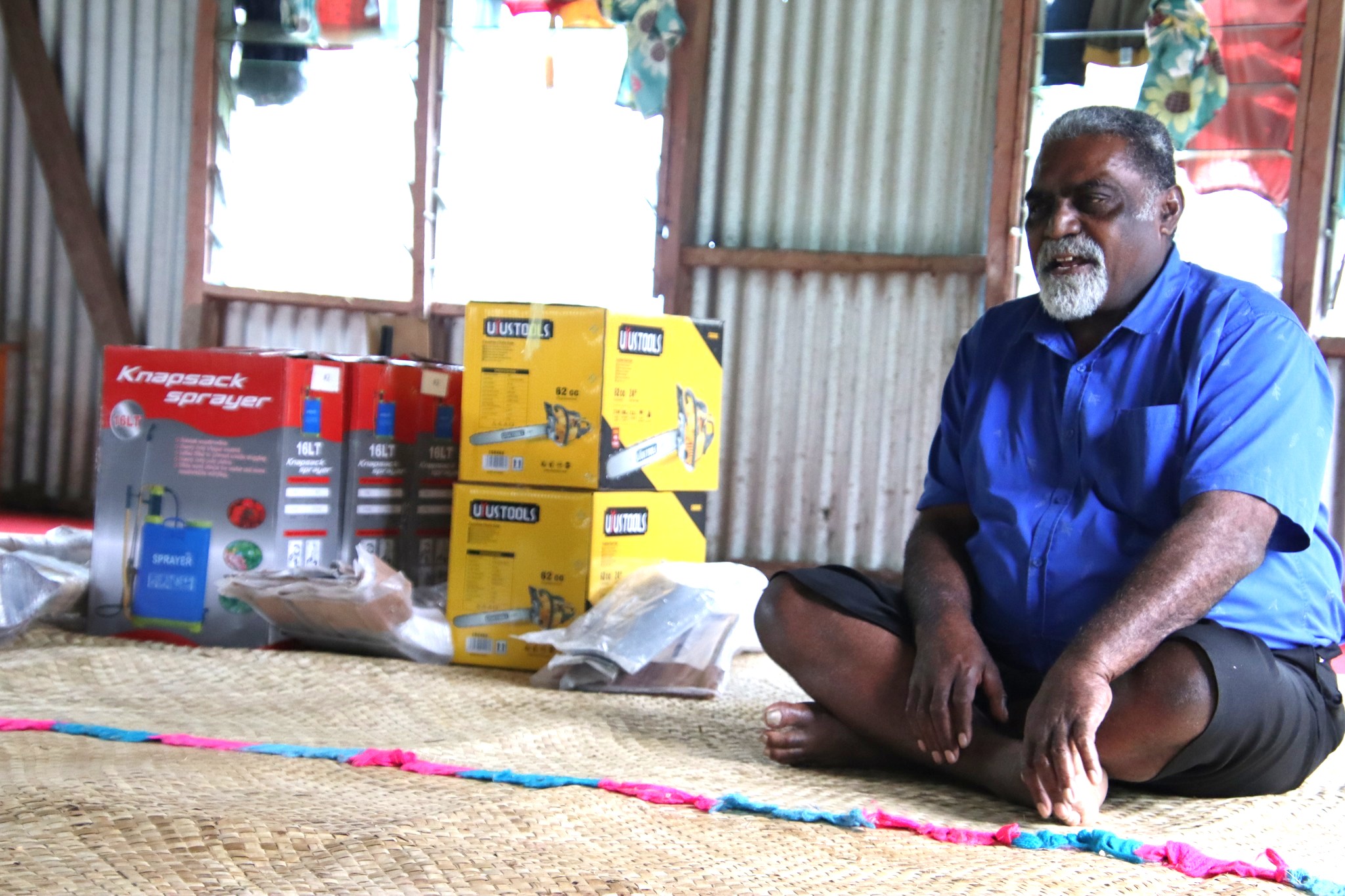SIX KAVA FARMERS BENEFIT THROUGH CADP
July 23, 2025

The Ministry of Agriculture and Waterways has reaffirmed its commitment to reviving Fiji’s kava industry, with a key focus in the 2025/2026 financial year.
This was highlighted during the handing over of kava farming equipment worth $19,993.15 to six farmers of Wainiyavu Village in the Tikina of Veinuqa, Namosi, under the Commercial Agriculture Development Program (CADP).
The assistance received today aims to boost their growing kava farming program and strengthen their consistent supply to one of Fiji’s key exporters, Lami Kava.
While handing over the equipment, Assistant Minister for Agriculture and Waterways, Honourable Tomasi Tunabuna, commended the farmers’ dedication and resilience.
“The Ministry acknowledges Mr. Severo Ratulevu and his group for their invaluable contribution in supplying yaqona to Lami Kava. This group of dedicated farmers consistently supplies over two tonnes of kava per week to the exporter,” Hon. Tunabuna said.
He also recognized the
significant role of Lami Kava in Fiji’s export market:
“Lami Kava exports approximately 80 percent of its kava to the United States, with the remainder sold through online platforms.”
In 2024, Fiji exported 730 metric tonnes of kava globally, valued at FJD$53.51 million, with 349 metric tonnes destined for the US market, valued at FJD$30 million.
“This is a remarkable milestone, as it marks the first time in 12 years that Fiji’s kava exports have surpassed the FJD$50 million mark,” Hon. Tunabuna added.
The Kava Farming Program, administered by the Ministry’s Extension Division, received a budget allocation of FJD$500,000 in the 2024/2025 financial year. For 2025/2026, this has been increased to FJD$1.9 million, underscoring the Ministry’s commitment to scaling up kava production and supporting industry growth.
Hon. Tunabuna also urged villagers to encourage youth participation through the Youth in Agriculture Program.
“This program engages youth in extensive farming initiatives such as kava farming, with a budget allocation of FJD$281,000 to assist young farmers in growing and supplying kava to major exporters," he said.
Severo Ratulevu, 36 years old,
expressed gratitude for the support, saying the assistance is timely and will
definitely boost their production and that they are determined to work even
harder to increase yields
Another recipient, Veniasi Tuiloma, 48 years old, highlighted the benefits of the farmhouse construction support.
“It will allow us to stay on
the farm for longer periods, giving us shelter and rest so we can maximize our
efforts.”
The assistance provided included chainsaws, knapsack sprayers, forks, spades, and materials for a farmhouse.
The Ministry remains committed to supporting kava farmers across Fiji as the government works towards doubling or even tripling kava production in the coming years.
ENDS
